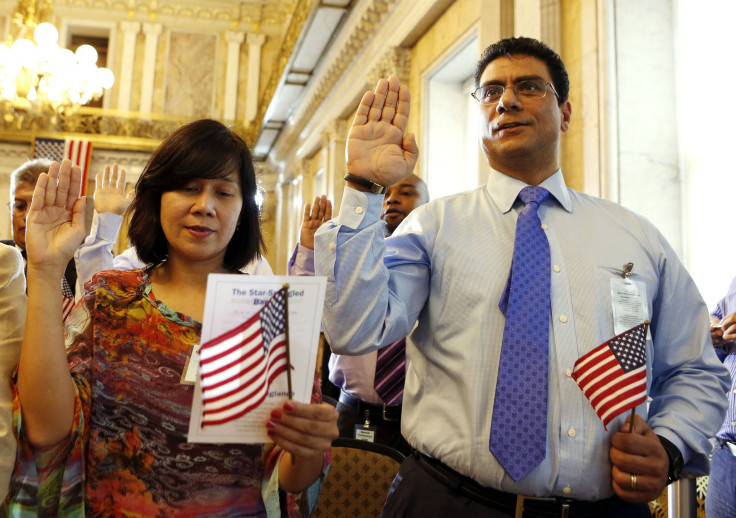Arabic Is Fastest-Growing Language In US As Immigration From Middle East, North Africa Spikes

Nearly a quarter of people living in the United States speak a foreign language at home, and the fastest-growing languages are Arabic and Urdu, census data from 2014 found, according to a report by the Center for Immigration Studies. In a four-year period, Arabic speakers in the U.S. jumped 29 percent, while speakers of Urdu, the official language of Pakistan, jumped 23 percent.
The recent findings have caused some concern among those who believe English should remain the U.S.'s primary language. Steven Camarota, an author of the report, told the right-leaning Breitbart News: “English as our common language is part of the glue that holds our country together. These numbers suggest that the levels of immigration are so high that it may strain that."
The Center for Immigration Studies' website said its researchers tend to support a "low-immigration, pro-immigrant" vision.
#Arabic has become the fastest growing language in the U.S. and is spoken by more than 1 million #Americans at home. pic.twitter.com/pmjBEsLkOj
— Israel News Flash (@ILNewsFlash) October 7, 2015
Numerically, the largest increases between 2010 and 2014 were among Spanish speakers, whose numbers increased by some 2.3 million people. Arabic -- but not Urdu -- factored in as one of the seven languages with more than a million speakers in 2014. Of the 63.2 million U.S. residents who speak a foreign language at home, 41 percent said they speak English less than well, and some 44 percent were born in the U.S.
Arabic is the official language of more than two-dozen countries in the Middle East and Africa, and basic language skills, including reading, are frequently taught in Muslim countries around the globe.
The rate of Arabic-speakers was expected to continue to rise as the U.S. recently announced plans to accept 100,000 refugees fleeing the war in Syria by 2017. The announcement was a humanitarian gesture. As the war in Syria has intensified, the situation of refugees in neighboring countries has worsened, and a growing number of refugees have sought safety in Europe.
Arabic has also become an increasingly popular language at universities, as the Middle East has risen in global significance in recent years. Student enrollment in Arabic-language courses in U.S. universities grew by 126 percent between 2002 and 2006.
© Copyright IBTimes 2024. All rights reserved.












